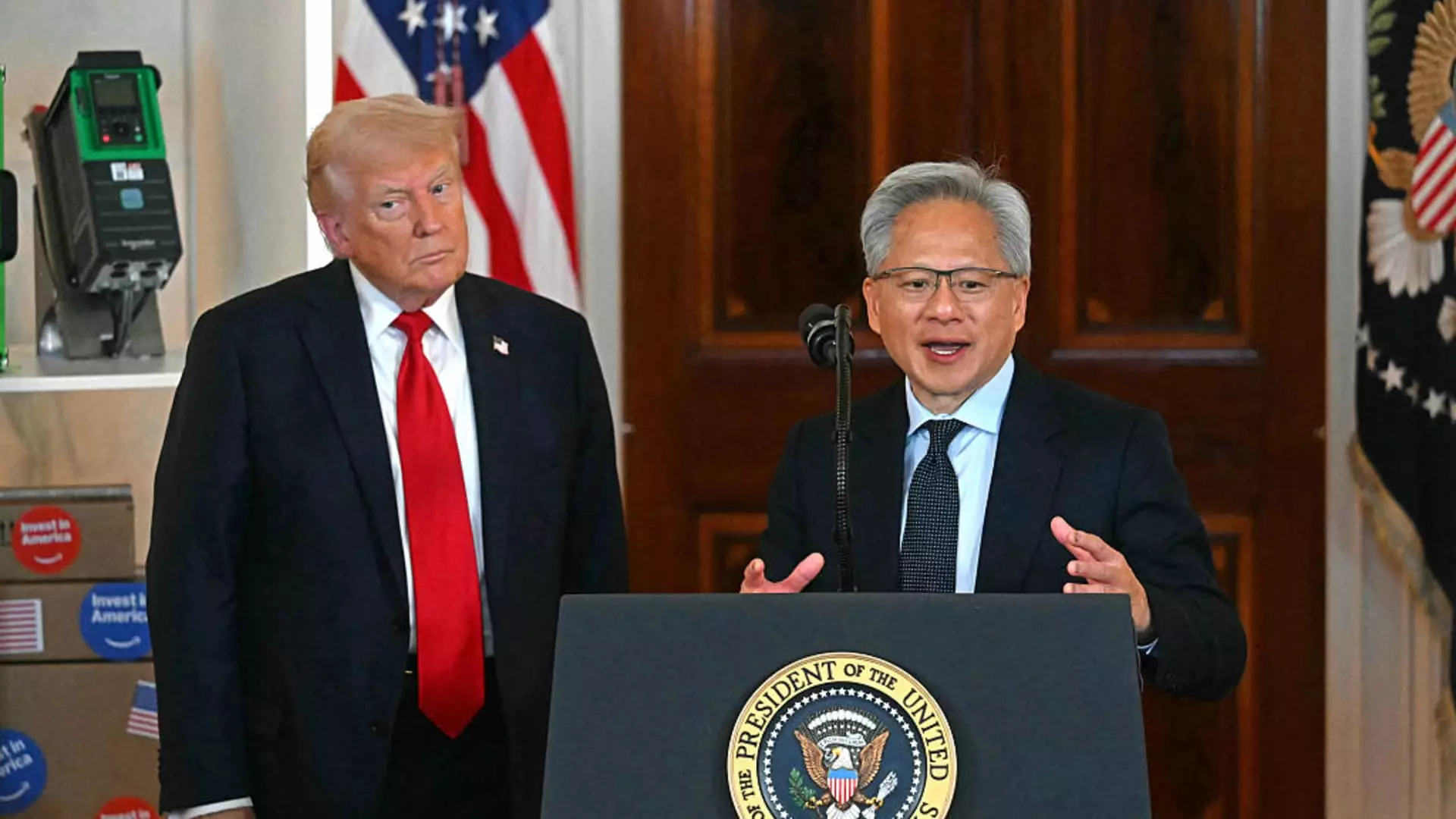In the complex landscape of global technology and geopolitics, decisions that seemingly favor economic expansion often come at a steep cost: the security and sovereignty of the nation. Recent developments highlight how political actors, cloaked in the guise of pragmatism or economic diplomacy, are dangerously undermining the foundations of U.S. technological supremacy. The recent lobbying by Senate Democrats demanding President Trump rescind the decision allowing Nvidia and AMD to sell AI chips to China exemplifies a shortsighted approach, risking far more than they realize. It is an unsettling display of bipartisan complacency, prioritizing immediate economic benefits or international agreements over the long-term strategic advantage critical to national security.
The Myth of Win-Win Negotiations in a High-Stakes Arena
The narrative promoted by these senators suggests that revenue-sharing deals are innocuous compromises—harmless trade-offs in the grand game of international commerce. However, they overlook the core reality: in the realm of cutting-edge technology, especially AI chips, the stakes are existential. The U.S. has historically maintained dominance through strict export controls, ensuring adversaries are kept at bay and military superiority is preserved. Permitting China access to advanced AI chips—arguably the backbone of modern military systems—sends a message that strategic technology is up for negotiation. The assertion that accepting 15% revenue minimizes risks is naive; it underestimates China’s capacity to leverage these chips for military and intelligence advancements. What appears as a diplomatic compromise is, in fact, an erosion of America’s technological edge.
Commerce vs. Security: A False Dilemma
Proponents of the deal argue that prohibiting AI chip sales stifles innovation and hampers American industry, citing billions in lost revenue and the potential for increased global competitiveness. Yet, this argument fundamentally misplaces priorities. Economic gain cannot be prioritized at the expense of national security—a principle that has historically guided prudent policymaking. Nvidia’s spokesperson emphasizes that their chips do not enhance military capabilities, but this dismissal ignores the broader strategic picture: the potential for these chips to be integrated into military systems indirectly, or to contribute to general technological prowess that funds military innovation. The priority should not be solely economic growth but safeguarding the technological infrastructure that underpins national defense. Ignoring this balance is a reckless gamble with potentially catastrophic consequences.
The Illusion of American Leadership Through Compromise
Winning in the global arena means playing by strategic rules, not transactional negotiations. The Democrat-led opposition to the administration’s decision reflects an ingrained, almost nostalgic faith in diplomacy and revenue-sharing as tools of soft power. However, in the world of advanced AI and semiconductors, the rules are set by those who control the technology. When policymakers retreat from the hard stance—caving to immediate profit motives—they inadvertently hand China a blueprint for bypassing restrictions and developing self-sufficiency. The notion that revenue from chip sales can or should outweigh the need for technological dominance is misguided. American leadership is rooted in innovation, control, and the strategic deployment of its technological assets, not in reactive negotiations that weaken these pillars.
The Broader Consequences of Short-Sighted Policy
This debate is symptomatic of a larger failure: the inability—or unwillingness—of political leadership to prioritize long-term strategic security over short-term economic appearances. By attempting to placate corporate interests or international partners, these lawmakers risk igniting a technological arms race from which the U.S. might never recover. China’s apparent reluctance to accept Nvidia’s return underscores the deep tensions and the high stakes involved; the country’s leadership is increasingly aware of the strategic vulnerabilities inherent in succumbing to economic pressures. Allowing Chinese access to advanced AI chips is akin to serving up our most powerful weapons on a silver platter—an act of strategic negligence that should alarm every patriot concerned with national sovereignty.
This situation underscores the importance of reevaluating how technology is prioritized within national policy. It demands a balanced approach—where innovation does not become a casualty of short-term financial interests, and security considerations remain paramount. We are at a crossroads, and the choices made here will define the trajectory of U.S. technological dominance, military security, and global leadership for decades to come. Failing to recognize the gravity of these decisions is not just a lapse in judgment but a derailment of America’s strategic future.


Leave a Reply